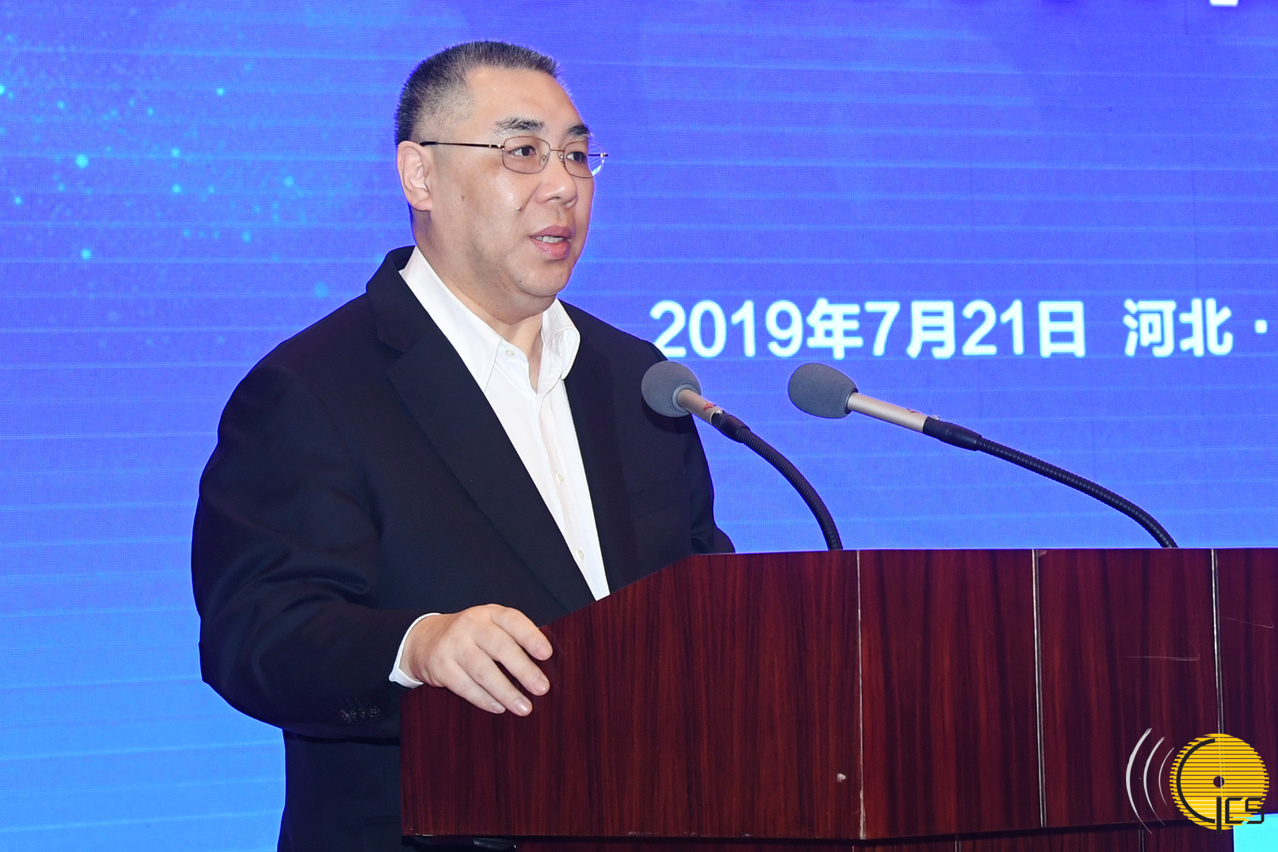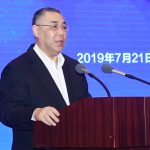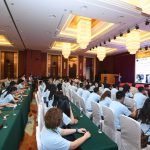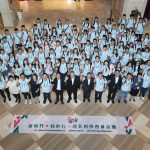 The Chief Executive, Mr Chui Sai On, delivers a speech at a seminar held in Chengde City regarding Hebei’s latest developmental progress.
The Chief Executive, Mr Chui Sai On, delivers a speech at a seminar held in Chengde City regarding Hebei’s latest developmental progress.
The Chief Executive, Mr Chui Sai On, said the visit to Hebei by some Macao young people was not only about promotion of patriotism and of knowledge about the country, but also about extending Hebei-Macao ties.
Mr Chui, who is leading a group of 100 young Macao people on a visit to Hebei Province – made the remarks on Sunday (21 July) in the city of Chengde, during a seminar about the latest progress in the province’s development.
The delegation arrived in Chengde on Sunday afternoon. Other officials accompanying the delegation included the Director of the Liaison Office of the Central People’s Government in the Macao SAR, Mr Fu Ziying, and the Macao SAR’s Secretary for Transport and Public Works, Mr Raimundo do Rosário.
The seminar was one of the highlights of the Hebei trip and an important lesson for young people to understand better the situation of the country, Mr Chui said in the seminar.
In his address, Mr Chui stated he hoped the Macao young people taking part in the visit were able to refresh their understanding about the country and strengthen their patriotic spirit.
Reviewing bilateral relations, Mr Chui said Macao and Hebei had a solid foundation for cooperation and a close friendship. These had been the basis for the two sides advancing, in recent years, cooperation relating to: Xiong'an New Area; to economic and trade matters; and in the field of traditional Chinese medicine.
The Chief Executive said he hoped – thanks to the visit – that young people from Macao and from Hebei would enhance their friendship and contribute to furthering ties between the two places.
Following the seminar, there was a high-level meeting of officials, involving Mr Chui and the Secretary of the Communist Party of China Hebei Provincial Committee, Mr Wang Dongfeng. Some of the young people from the Macao delegation sat in on the meeting held in Chengde.
During that Sunday (July 21) meeting, the two officials agreed to step up effort – based on the foundations for cooperation established previously – to facilitate exchanges between young people from Macao and from Hebei.
The Chief Executive pointed out that youth affairs were a pillar of the governance of Macao. By creating platforms linking to the mainland, the SAR Government hoped Macao young people would enjoy greater opportunities to visit mainland provinces, thus deepening their understanding of the nation.
Secretary Wang said in the meeting that the visit to Hebei by Macao young people illustrated a further step to strengthening the friendship between the two places. He added the Hebei Provincial People’s Government would elevate its effort in extending fields of cooperation between Hebei and Macao.
Prior to the high-level meeting, Mr Chui took part in a birthday celebration for those delegation members born in July. He wished them a happy birthday, and good health and fulfilment. Mr Chui told those young people to cherish their youth and encouraged them to pursue their dreams.
The Hebei visit is part of a programme of five tours to mainland provinces that are jointly organised by: the Macao SAR Government; the Liaison Office of the Central People’s Government in the Macao SAR; and a body formed by Macao youth associations.
The visits are part of the celebrations for this year’s ‘two anniversaries’ and are designed to assist Macao’s young people to grasp – in a comprehensive and intensive way – the latest aspects of national development.
The two anniversaries are the 70th anniversary of the founding of the People's Republic of China, and the 20th anniversary of the establishment of the Macao SAR.




